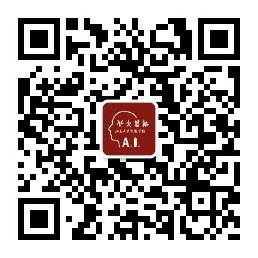

The development history of the School of Intelligent Science and Technology can be traced back to the 1980s. In 1985, initiated by Mr. Cheng Minde, a member of the Chinese Academy of Sciences, and Academician Shi Qingyun, the School was established with the participation of various departments, including the Department of Mathematics, Department of Computer Science, and Department of Ratio Electronics. Leveraging the comprehensive interdisciplinary advantages of Peking University, the Information Science Center was established, and in 1988, the State Key Laboratory of Vision and Auditory Information Processing, was established, becoming a leading institution in the field of artificial intelligence in China.
In 2002, the Department of Intelligence Science was established based on the Information Science Center. In 2003, it launched the first undergraduate program in Intelligent Science and Technology in China, leading to the establishment of this program in more than 100 universities nationwide. In 2008, a complete education system for bachelor's, master's, and doctoral degrees was formed. In 2020, the undergraduate program in Intelligence Science and Technology was approved as a national first-class program. In 2021, based on the original Department of Intelligence Science and Technology, Peking University established the School of Intelligent Science and Technology and strengthened the development of the discipline by collaborating with the Institute of Artificial Intelligence and the Wangxuan Institute of Computer Technology. The School conducts organized research and serves the national AI strategy. The intelligence discipline is divided into 11 major research directions: computer vision, natural language processing, auditory science, speech and music, intelligent graphics and interaction, machine learning, cognitive reasoning, multi-agent systems, intelligent robotics, data intelligence and computational intelligence, cross-media intelligence, and intelligent information systems.
To deepen talent cultivation, the School of Intelligence Science and Technology collaborates with the School of Information Science and Technology to jointly develop the undergraduate program in Intelligence Science and Technology. In 2022, the "Peking University Intelligence Science and Technology Experimental Class" was established to cultivate leading talents in the field of intelligent science and technology, playing a role as an innovation and talent engine in promoting the development of the AI discipline in China. In 2022, the discipline of Intelligence Science and Technology became a newly added first-level discipline by the Ministry of Education.
Over the years, the School has undertaken hundreds of national, provincial, international, and industry collaboration projects. These include projects from the National Key Research and Development Program, National Basic Research Program (973 Program), National High-Tech Development Program (863 Program), National Science and Technology Support Program, Ministry of Science and Technology's Climbing Program, National Natural Science Foundation Major or Key Projects, and National Social Science Foundation Major Projects. The School has made significant progress in the field of intelligent science and technology, with many research achievements reaching international advanced levels. It has also cultivated a large number of outstanding talents in the field of artificial intelligence.
Looking to the future, the School will continue to serve the major strategic needs of national scientific and technological development and talent cultivation. It will advance the construction of Peking University's new engineering disciplines, grasp the opportunities of the times, embrace opportunities and challenges, and train top talents in the field of artificial intelligence for the new era who have lofty aspirations, practical capabilities, moral integrity, and integration of knowledge and action. The School aims to make greater contributions to the development and construction of China's AI discipline.
Job Positions: Assistant Professor/Associate Professor/Tenured Associate Professor (Note: Scholars interested in applying for tenured professor positions can contact us separately.)
Recruitment Directions: Computational Cognition and Common Sense Reasoning, Robotics, Multi-Agent Systems, Foundations of Artificial Intelligence, Intelligent Graphics and Interaction, Natural Language Processing, Computer Vision, Machine Learning, and other key development areas in the field of artificial intelligence.
Qualifications: Excellent research and teaching capabilities, as well as enthusiasm for education. Candidates applying for higher-level positions are expected to have a high level of international reputation and influence.
Address: No. 5, Yiheyuan Road, Haidian District, Beijing Feedback: its@pku.edu.cn
Copyright © All Rights Reserved.
